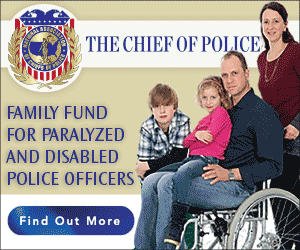It’s 3 p.m. in Virginia Beach, Va., at the North American Grappling Association (NAGA) Tournament. The long-awaited match is about to begin between two Brazilian jiu-jitsu competitors. The first competitor is a judo champion and coming off a three-match winning streak in the NAGA. His opponent recently won a “no rules” cage fight. The room is packed full, the air is musty and sweat reverberates in every direction. The silent excitement has taken hold of everyone in anticipation. The ref has the competitors shake hands and confidently, announces “begin.”
The first opponent stays low, centered, and begins to move forward all the while swaying back and forth. He goes for a lapel grab and is met with a more aggressive opponent who drives forward and punches him in the face. The match is immediately stopped and the crowd reacts in excitement.
The match is reset. The first opponent, moving faster but still staying low, goes for a double leg takedown and misses. His opponent takes advantage of this and grabs him by the head, an illegal move. The competition is forgotten about as the two men begin to fight. Within seconds, coaches, teachers, and crowd members are separating the two men. Both men are disqualified and shouts of “let’s take this outside” come from both camps.
Emotional intelligence is the capacity to be aware of, control and express one’s emotions. It may sound like witch-doctor trickery, but stay with me and hold on for the ride because this is the difference between average and great. Wisdom such as this was put in to real-world context and application by the famous Sun Tzu, the author of “The Art of War.” He says:
“If you know the enemy and know yourself, you need not fear the result of a hundred battles. If you know yourself but not the enemy, for every victory gained you will also suffer a defeat. If you know neither the enemy nor yourself, you will succumb in every battle.”
Both men were in a differing head space. One came from a competition background and was in a controlled environment, compounded by rules and regulations. The other was ready to battle for blood. Which is easier — to force a man who plays by the rules to be unruly or to force an unruly man into the box of rules? Hindsight being 20/20, the evidence is not the latter. So what does it mean to know thyself? What if the enemy we are battling is the enemy within?
For a long time, law enforcement officers have worked within strategies like “ask you, tell you, make you.” For example, you pull someone over and ask them to exit their vehicle. They do not cooperate, so you move on to the next step. Sir, step out of the vehicle. Still no cooperation. Step three, that’s hands on and you are made to exit the vehicle.
While this can be an effective strategy and tactic, in today’s world it may not align with reality. What happens when the driver is autistic, has PTSD, or is in the midst of a nervous breakdown? You could pretend like these things don’t exist or you can take a tactical pause, step back from the moment, and re-filter what is really going on.
When you reflect on this strategy how well do we assess ourselves while going through escalation of force? Do you stay calm, collected and controlled, similar to the competitor, or are you switched on, amped and excited to move to the “make you” stage? How do our own actions in those moments reflect the person and the department?
Knowing one’s tells, pet peeves and triggers are invaluable to the safety of our officers. Some of you are reading this and it’s too “touchy feely” of a subject. Others will minimize it, or worse, cognitive dissonance won’t even let you contemplate questions like this. The truth is, we have to. We must soul search and see who we are, how we function and where our head is if we want to get better. Are you an “operator” responding to a call?
What’s the takeaway? What’s the lesson? Get to know how you tick. Get feedback from your trusted leaders, partners, family and friends. Let those closest to you share their perspective. We are a part of a type-A, ego-driven human profession. Asking for feedback is much easier than making a bad call or ending up on the news for that call. Emotional intelligence is a tool that can bridge the gap. It is about recognition, preparation and acceptance. We all know someone who is a bull in a china shop, and we don’t put these folks on a political stage. A wise man knows his limits. A wiser man self corrects.
The board room, like the streets, is a brutal place but for very different reasons. While a bad call on the street can get you hurt a bad call in the boardroom can cost you your career. You’re ready to take the project lead and everyone either stays silent or they are ready to throw you under the bus because of your inability to be clairvoyant. The folks who say “it’s not in the budget” are the same folks pushing for results when the necessary resources are missing.
We need to be self-aware of our own pet peeves. A boss, colleague, or politician may annoy us by their forwardness, timidity, under-thinking, or over-thinking. We are all hardwired differently. Walk in the room and expect to get push back, lack of support and criticism. Then, you are prepared to address those attitudes as they arise. Stay with the facts, recognize your own emotions, acknowledge them and then don’t go near them. Push for what is right.
Who in your life both on and off the job pushes your buttons? Is it a boss, junior or peer? What do they do that pushes your buttons? Now, suit up and figure out how you will work with and manage this going forward. Learn from my mistakes. Don’t do what I did when I was young in the game and made it about winning, being right or anything other than making the best call you can make for the team. I always say be like a duck — cool and calm on the surface and swimming your butt off looking for a solution under the water.
But Cujo, it’s too hard, time-consuming and sounds exhausting. You want me to “get to know myself” like some psychologist? That’s exactly what I’m telling you. When the balloon goes up, how long does it take you to put your hand on your gun? Why? Does every situation deem that necessary?
Well, what if I needed my gun and I don’t do it and I don’t make it home, you say.
If 100 out of 100 calls your hand is on your gun, are you making the situation worse? If you have one person of interest surrounded with the tactical advantage, does everyone need their hand on their gun or should it be just the one(s) with line of sight? If you are short-fused by nature, then recognize that, adjust, make yourself slow down and breathe. Problems are often more complex than initially thought. What approach you use can make a difference? There is rarely a silver bullet answer to all problems and we all should know that. So, if you find out during a conversation that the one you’re talking to is autistic, has PTSD or lives at a heightened state of vigilance, does the hand on the gun make sense? We have to dive deep long before we roll up on the scene. A law enforcement officer who has discipline and self-control will always be the victor over their enemy — even if that enemy is themselves.




